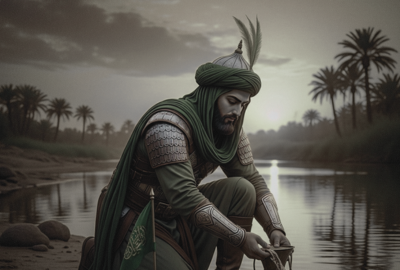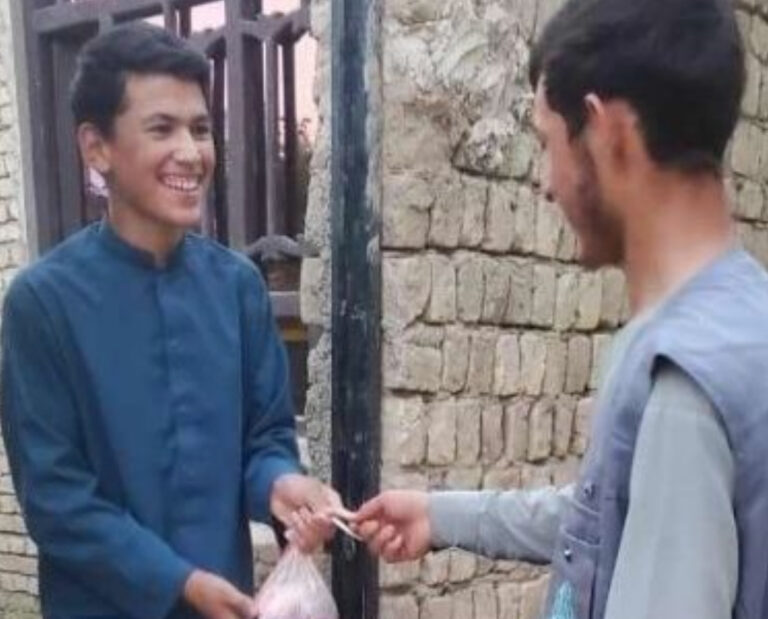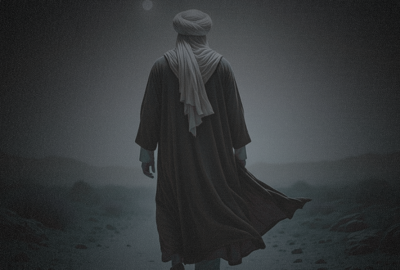5 Timeless Lessons from the Tragedy of Karbala
The tragedy of Karbala, which took place over 1,300 years ago, is more than a historical incident. It’s a timeless source of guidance and spiritual reflection.
Imam Hussain (as) and his companions were beacons of moral strength. Through their devotion and sacrifice, they left behind a legacy of spiritual and ethical guidance.
Here are five lasting lessons from Karbala that continue to inspire us today.
1. Be a Follower Before a Leader
True leadership starts with sincere following. Before becoming the Imam, Imam Hussain (as) was a devoted follower of:
- His grandfather, Prophet Muhammad (saww).
- His father, Imam Ali (as).
- His brother, Imam Hassan (as).
He upheld their example throughout his own leadership. Likewise, his family and companions followed him with loyalty and love.
Even with death looming, they stood firmly beside him. Their devotion wasn’t for status but to uphold truth. Their unwavering support for the son of Lady Fatima Al-Zahra (sa) earned them everlasting honor.
The Master of Martyrs (as) is reported to have said, “I do not know companions more loyal and better than my companions. I have never found household members more excellent in observation of bonds of relationship than my Household (as). Allah (swt) will reward you graciously on my behalf.”
(Maqtal al-Hussain)
2. You Are Never Too Young to Show Courage
Some of the most moving examples from Karbala are the young people who stood courageously:
- Ali Al-Akbar (as), the son of Imam Hussain (as). Learn more about his martyrdom here.
- Qasim (as), the son of Imam Hassan (as). Read more about his sacrifice here.
- Aun (as) and Muhammad (as), the sons of Sayyida Zaynab (sa).
- Ali Al-Asghar (as), the 6-month-old son of Imam Hussain (as).
Even knowing the outcome, they showed unmatched bravery on the Day of Ashura.
Qasim (as) asked, “Am I too included in the list of the martyrs?”
Imam Hussain (as) replied with a question, “O my dear son! How do you consider death (martyrdom in the way of Allah) to be near you?”
Qasim (as) replied, “It is sweeter than honey.”
Imam Hussain (as) then said, “Verily, by Allah (swt)! May your uncle be your ransom! You are one of them, who shall be martyred along with me after having fallen prey to a severity, and my (infant) son Abdullah (Ali Al-Asghar) shall be martyred too.”
3. It is Never Too Late to Turn Back to Allah (swt)
Karbala reminds us that the door to repentance is always open.
In Surah az-Zumar, Allah (swt) says, “(O Muḥammad,) say (on My behalf), ‘O My servants who have transgressed against their own selves, do not despair of Allah’s (swt) mercy; verily Allah (swt) forgives all the sins (since) He indeed is the Most-Forgiving, the Merciful.” (39:53)
Two key examples are:
- Hurr ibn Yazid al-Riyahi
- Zuhayr ibn al-Qayn
Hurr had prevented Imam Hussain (as) from reaching Kufa. However, when he realized the injustice that was occurring, he found himself torn between heaven and hell.
He initially opposed Imam Hussain (as) but later chose the path of truth, switching sides and becoming a martyr.
Learn more about Hurr’s martyrdom here.
Zuhayr ibn al-Qayn is another example. Zuhayr was a supporter of the third caliph and believed that Imam Ali (as) was responsible for his murder.
Zuhayr was travelling with his wife on a similar route as Aba Abdillah (as) and the Caravan of Honour from Mecca to Iraq. Zuhayr would purposely try to avoid the Imam’s (as) caravan throughout this journey.
During one point, the two caravans would stop near the same spot. Imam Hussain (as) requested to meet with Zuhayr. Although Zuhayr was hesitant to meet the Imam (as), his wife convinced him to meet the Imam (as).
Nobody knows what was said in that meeting. But after meeting Imam Hussain (as), Zuhayr too joined the righteous side.
Both stories show how one sincere moment can lead to eternal salvation.
4. Recognizing the Imam of Your Time
Knowing and following the Imam of one’s time is a religious duty.
Prophet Muhammad (saww) is reported to have said, “Whoever dies without knowing his Imam has died a pagan death.” (Bihar al-Anwar, V. 23)
Many in Yazid’s (la) army knew Imam Hussain (as) but failed to support him because of pride and fear.
Recognition of the Imam requires not just intellect, but also spiritual clarity and moral courage. Through this, we can also know Allah (swt) in our limited capacity.
When asked how to attain knowledge of Allah (swt), Imam Hussain (as) is reported to have said, “It is for the people of every time to know their Imam, obedience to whom is mandatory.”
5. Always Stand for Truth and Justice
Standing for truth and justice can be difficult and costly, but it is essential.
In Surah al-Ma’idah, Allah (swt) says, “O you who believe! Be maintainers of justice (and bearers of witness) for (the sake of) Allah (swt). Let not hatred of a people incite you not to be equitable; be (just and) equitable—that is nearer to piety. And guard yourselves against displeasing Allāh, surely Allah (swt) is aware of what you do. (5:8)
Imam Ali (as) is reported to have said, “The best of people in the sight of Allah (swt) is he who likes to act according to what is right, even if it brings him loss and misery, more than what is wrong, even if it brings him profit and increase of wealth.” (Nahjul Balagha, Sermon 125)
Imam Hussain (as) did not take a stand to gain power. Rather, he wanted to reform a society that had moved away from Islamic values. He stood against oppression to revive the teachings of his grandfather, the Prophet (saww).
Imam Hussain (as) is reported to have said, “I never revolted in vain, as a rebel, or as a tyrant, but I rose seeking reformation for the nation of my grandfather Muhammad (saww). I intend to enjoin good and forbid evil, to act according to the traditions of my grandfather (saww), and my father Ali ibn Abi Talib (as).” (Bihar al-Anwar, V. 44)
His stand teaches us that justice is not optional – it’s a divine obligation. s our responsibility.
Conclusion
Karbala is more than a historical event. It’s a living message of courage, justice, and faith.
Its lessons shape how we live, lead, and believe today.
FAQs
The values of Karbala – faith, justice, courage, and repentance – are universal. Imam Hussain (as) and his companions made a stand that continues to inspire people worldwide across generations.
It means that true leadership comes from sincere following. Imam Hussain (as) followed the Prophet (saww), Imam Ali (as), and Imam Hassan (as) before leading himself. His companions followed him with loyalty, showing that great leaders are first great followers.
Yes. Youth like Qasim ibn Hassan (as) and Ali Al-Akbar (as), and even the infant Ali Al-Asghar (as), were present and martyred. Their courage shows that faith and conviction are not limited by age.
Yes. Hurr’s sincere repentance just before the battle shows that it’s never too late to turn back to Allah (swt). As the Qur’an says, His mercy is always available to those who sincerely repent (Qur’an 39:53).
It means knowing, obeying, and supporting the divinely appointed Imam of your era. For our time, that is Imam Mahdi (ajtfs). This includes learning about him and aligning your actions with Islamic values.
Imam Hussain (as) gave everything to uphold truth and justice. His sacrifice teaches us that justice is a core value of Islam and that standing up for it is a duty, even in the face of loss.









